Welcome to the Preschool Program
Our Curriculum
Online Daily Sheets: We’ll electronically track daily information about your child’s meals, moods, activities, photos, and more! This information is accessible from your computer or through a Smartphone or iPad application. You’ll have peace of mind while you watch what your child is doing while in our care.
Age Range: Preschool students that are 33 months of age to 4 years. Low Student/Teacher Ratio: 10:1
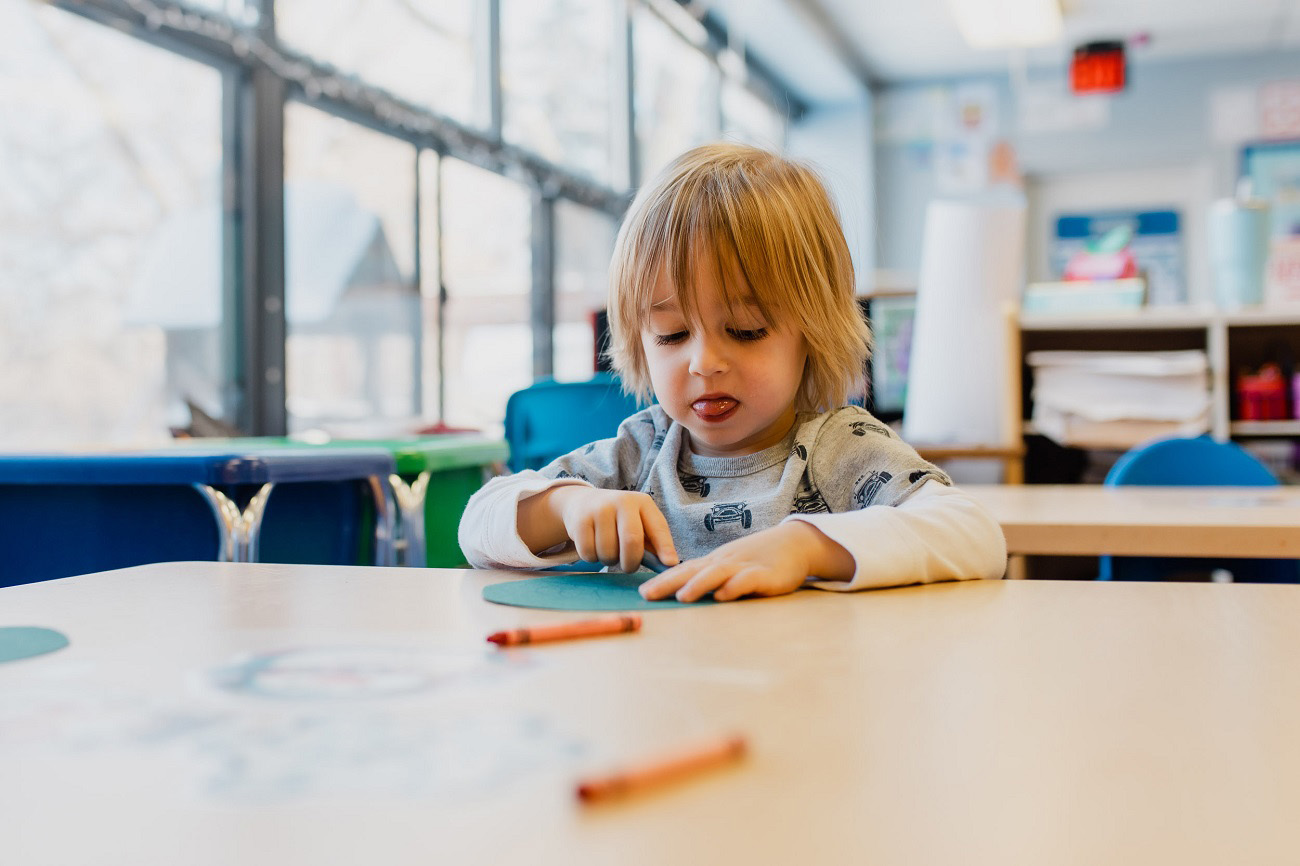
Our Teachers
Experienced: Our preschool teachers have Many years of experience working with children. Tami has over 20 years over experience and been with us since 2022 (previous employment with us from 1991-2001), Jennifer has been with us since 2019, and Lauren has been with us since 2014. Our experienced teachers truly enjoy working with preschoolers and offer a safe, supportive, and educational classroom for your child.
Loving: Our teachers are patient, encouraging, give lots of positive praise and will treat your child as an individual.
Consistent: We know that providing a limited number of consistent caregivers who your preschooler will relate to on a regular basis helps to promote trust and emotional security. This is why you’ll see the same smiling faces each and every day at Children’s Discovery Academy.
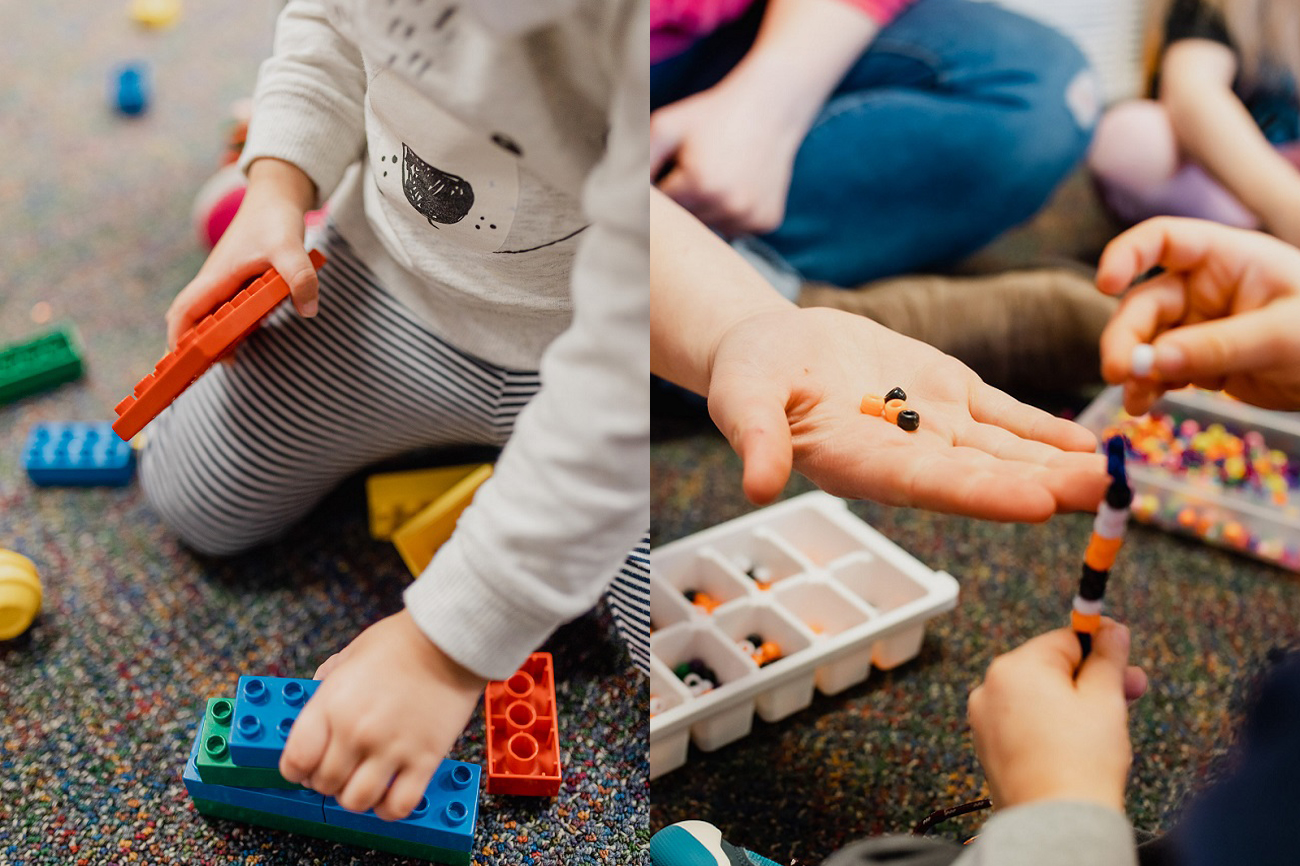
Our Curriculum
At Children’s Discovery Academy we celebrate the fact that we do not teach from a boxed curriculum but instead employ caring, qualified educators to write curriculum which meets all of the Early Childhood Indicators of Progress. This way, we can ensure we are meeting the individual needs of your child. The preschool daily schedule is structured, academically focused and fun! Weekly lessons and activities focus on a curriculum rich in reading, math, science, art, music, sensory, dramatic play and imaginative play.
Language Development: The vocabulary of your preschooler continues to grow with new experiences. Your son or daughter will continue to perfect speaking in full sentences and using words more correctly in context. The articulation of many beginning sounds is still developing.
Reading: Reading stories and activities including flannel boards, finger plays, and rhyming all help to foster reading skills. Your preschooler will be introduced to tape stories, sequencing, comparing things that are same and different, opposites, listening for patterns, understanding concept words such as over and under, and music. He or she will begin doing more teacher directed art projects and following three-step directions.
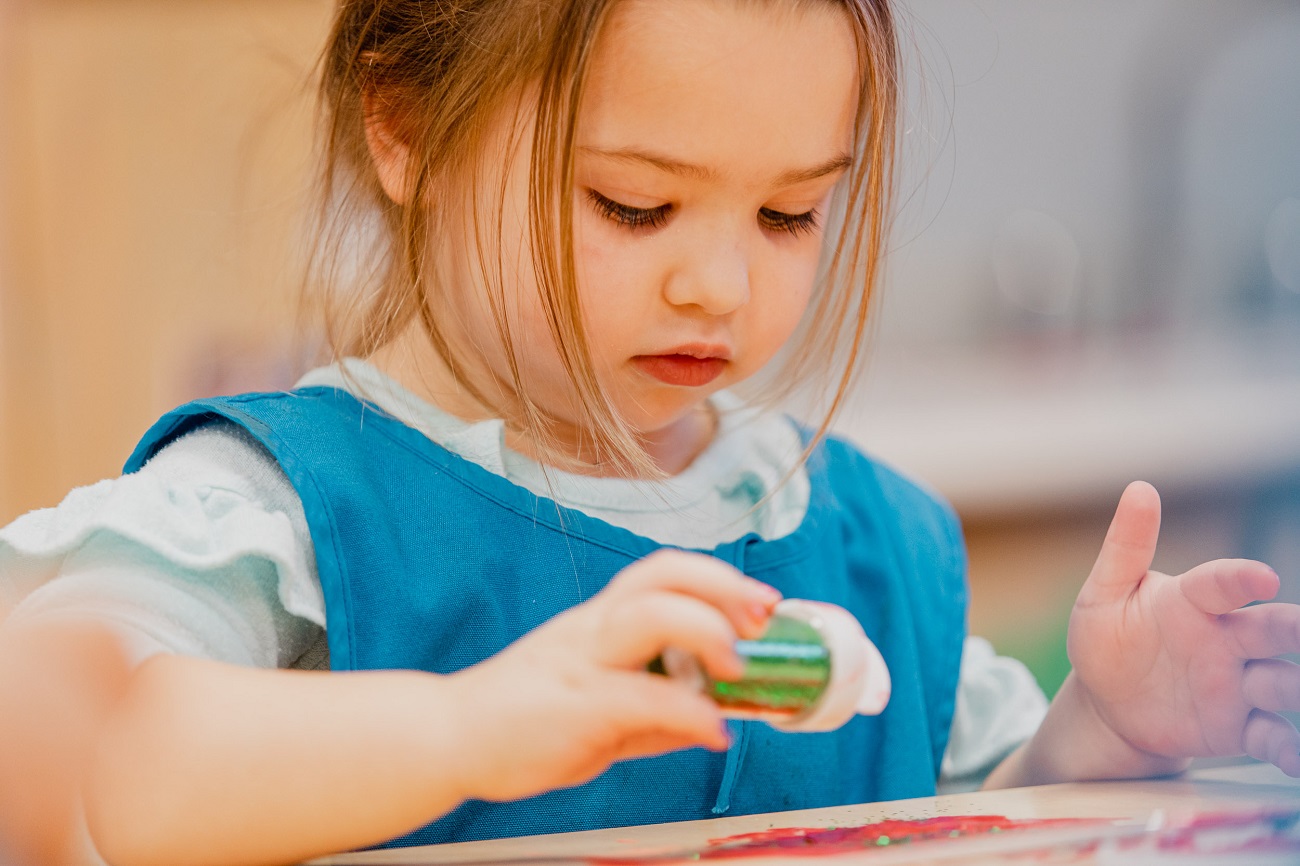
Math: Matching colors, recognizing colors, and identifying colors are all part of your preschooler’s abilities. Your child will become competent at matching and recognizing shapes. He or she will begin counting from 1-30 (and beyond) and comparing things that are the same and different. Other things that help foster math skills include working with puzzles, creating patterns on peg boards, sorting and sequencing objects, building with blocks, and comparing sizes and shapes. Your preschooler will also begin to analyze things such as the mass of an object and whether things will sink or float.
Social Development: Socially, your preschooler is learning to treat others as friends, control impulsive behaviors, take turns, learn the concept of respect, use good manners, be independent in toileting skills, share with others, and use their own words to solve conflicts.
Emotional Development: Teachers will continue to work on your child’s positive self-esteem through songs, listening to stories about your family, giving him or her the opportunity have a turn to become the star of the week, and giving lots of positive praise. Your child will be encouraged to be independent with toileting skills, dressing him or herself (including shoes and coats), hanging up coats and putting clothes away in cubbies. Your preschooler will begin to make more choices on their own. Your child may still be developing conflict resolution skills. Teachers will continue to coach your child on what they might say to get the solution they are seeking.
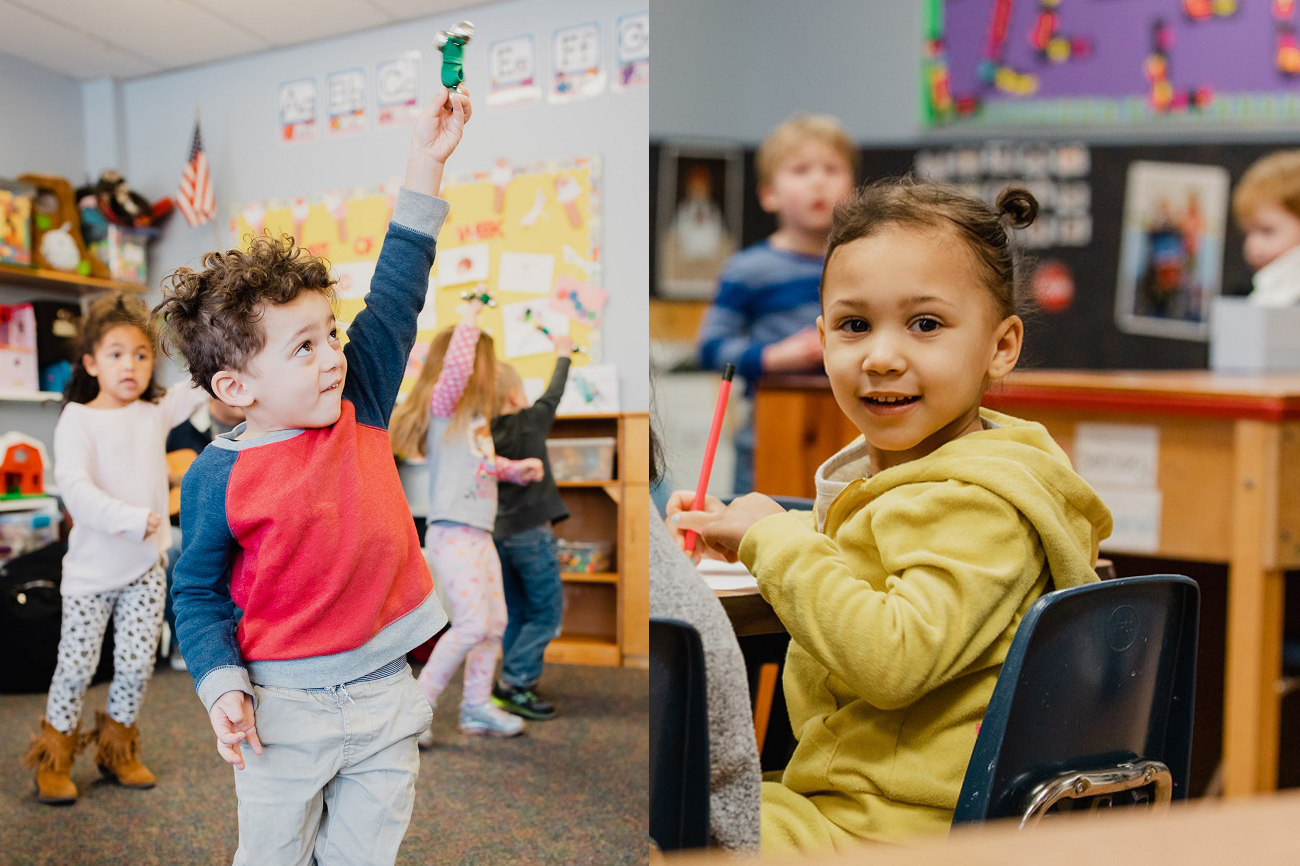
Small Muscle Development: A small sample of the activities that help develop small motor control are: building blocks, sorting beads, stringing beads, coloring, cutting, painting, using different media for art, play dough, pegboards, sensory table, pouring and sifting through sand and water play using spoons, cups and measuring cups.
Large Muscle Development: Running, jumping, climbing, hopping, ball play, dancing, tumbling, riding bikes, kicking balls, etc. are all activities that promote the development of large muscles. The preschooler has gained more control of their large muscles, and is now working on gaining strength and coordination. Your preschooler will enjoy recess twice a day, either outside on our large playground or inside in our gym.
Enrichment Programs: Fee-based lessons including dance, music, gymnastics, soccer and swimming are available to your preschooler.
Star of the Week: Your preschooler will have a turn to become the classroom’s star of the week, encouraging positive self-esteem. He/she will be encouraged to bring in items from home to share and introduce to the classroom. This is a great way to give your son/daughter lots of positive praise.
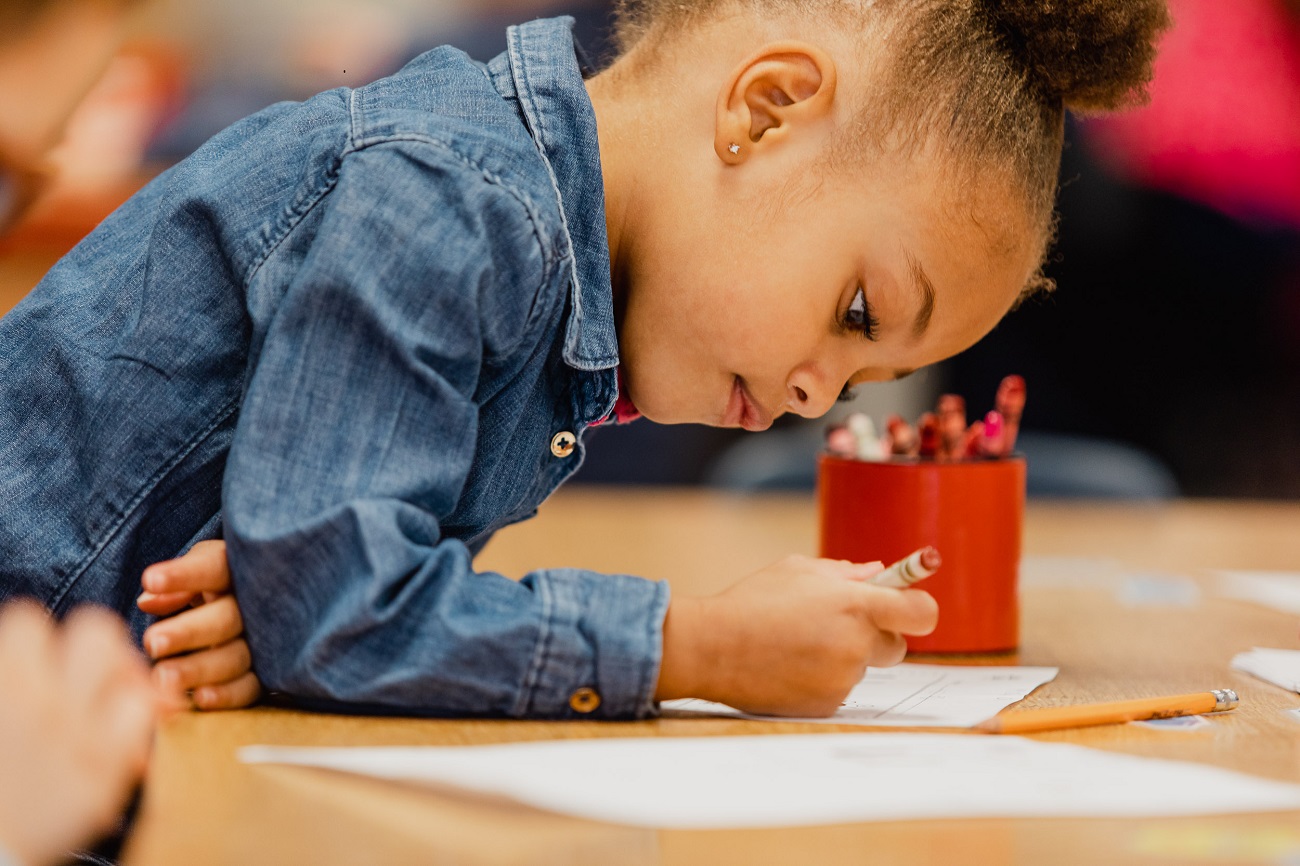
Special Activities: Special activities will relate to classroom lessons, bringing a firsthand experience to your child. Storytellers, animal exhibits, magicians, musicians, etc. are invited each month to share their specialties with our students. Please check classroom bulletin boards for planned activities. Any additional charges for special activities will be added to your weekly tuition.
Read Reviews from Preschool Parents:
Makes my child’s day so much brighter
Better relationships and better attitude
Outstanding staff and great curriculum!
